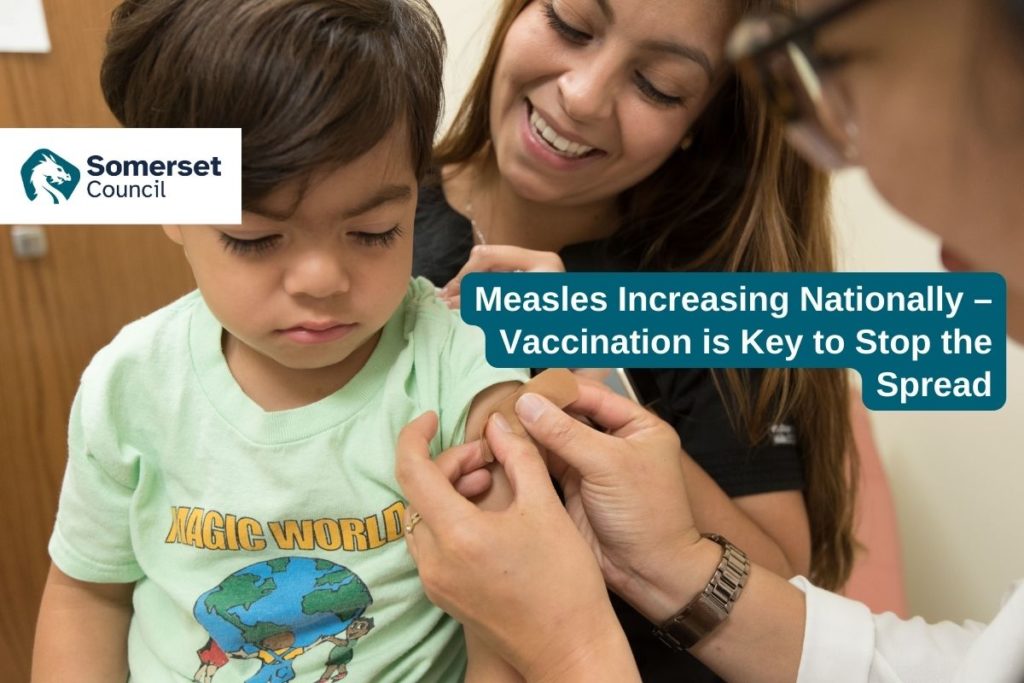Measles is a highly infectious disease, spreading quickly from person to person, especially in schools. A child with measles will infect almost all unprotected children they have contact with.
Measles can be a very serious disease, leading to ear and chest infections, fits, diarrhoea, and damage to the brain. Measles can kill. Children are at risk of measles if they have not had the measles, mumps and rubella (MMR) vaccination. Two doses of MMR vaccine are needed to get the best protection. You can contact your GP to check if a child has been vaccinated.
Timing of MMR vaccinations
The best times are between 12 and 13 months of age and again at 3 years and 4 months, with one dose on each occasion. But it is never too late to receive the vaccine. A child can be vaccinated at any age with 2 doses one month apart.
Symptoms of Measles
The earliest signs of measles infection include:
- High fever
- Runny nose
- Cough
- Red and watery eyes
- Koplik spots (small red spots with bluish-white centres) inside the mouth.
- After several days, a rash appears, usually on the face and upper neck. The rash spreads, eventually reaching the hands and feet and lasts 5 to 6 days before fading. Measles is commonly confused with other infections that can lead to a rash.
If you are concerned that a child at your setting has any symptoms of measles, please contact UKHSA’s Health Protection Team before acting any further. They will be able to assist you with how to handle the situation.
Telephone: 0300 303 8162 (option 1, then option 1)
Out of hours advice: 0300 303 8162 (option 1)
Email: swhpt@ukhsa.gov.uk
For more information about measles and MMR see the NHS Website at www.nhs.uk/conditions/measles/

